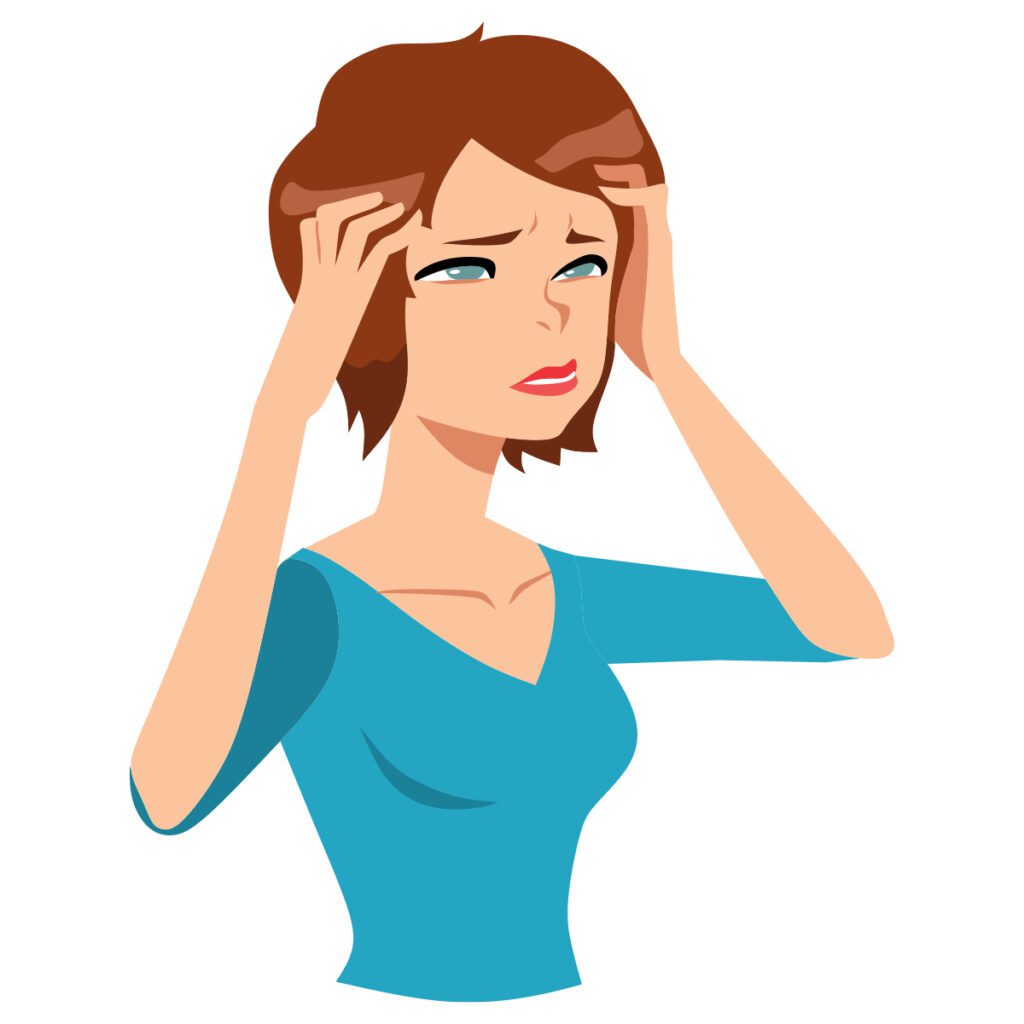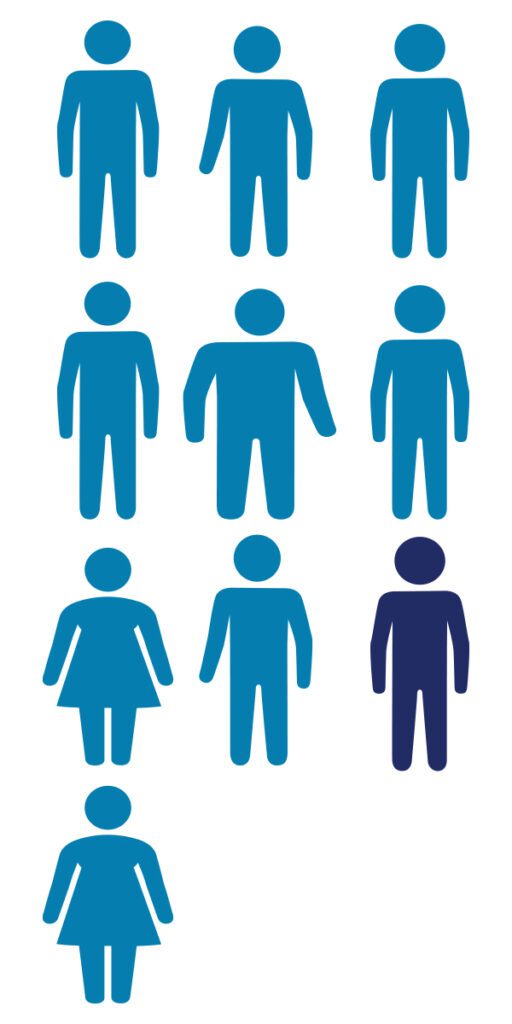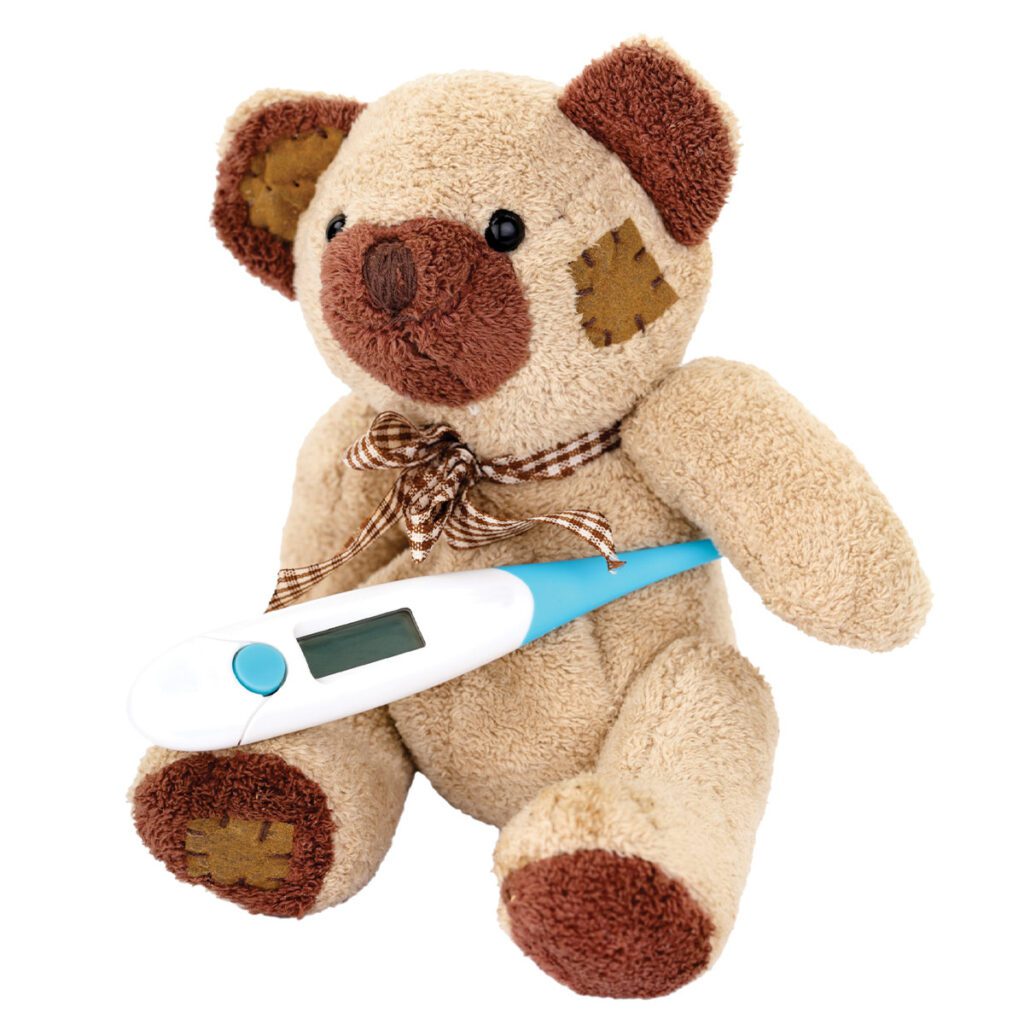For Her
When Your Period’s A Headache
What’s the Connection?
If you find yourself suffering from painful headaches before or during your period, you’re not alone: many women report headaches during this phase of their monthly cycle. The culprits are two hormones that regulate the menstrual cycle – estrogen and progesterone – which can affect headache-related chemicals in the brain. Estrogen, in particular, can induce or worsen headaches if it dips or changes, and estrogen levels drop right before your period. If your headaches become a debilitating monthly occurrence, see your doctor. A physician may recommend preventative daily medications such as beta-blockers, antidepressants, or birth control pills. Lifestyle changes, such as physical activity and stress reduction, can help reduce the severity and frequency of your headaches too.
Source: Mayo Clinic


Thyroid Problems
Learn the Signs and Symptoms
It might be a small gland, but the thyroid produces hormones that control many of your body’s functions, from how fast you burn calories to how fast your heart beats. Hypothyroidism, or underactive thyroid, is extremely common in women, especially those older than age 60. With hypothyroidism, your body fails to produce sufficient amounts of certain hormones, causing several of the body’s functions to slow. Symptoms of hypothyroidism often develop over time. Here are some things to look out for:
- feeling very tired
- constipation
- feeling cold when others don’t
- pale, dry skin
- a puffy face
- muscle weakness
- feeling sad or depressed
- dry, thinning hair
- heavier or irregular menstrual bleeding
- slowed heart rate
- pain, stiffness, or swelling in your joints
- a hoarse voice
- weight gain, even though your diet hasn’t changed
Source: Office on Women’s Health, U.S. Department of Health and Human Services, American Thyroid Association
Did You Know?
Your feet can send signals of serious health issues. Tingling or numbness could mean diabetes, and swelling could be a sign of kidney disease or heart disease.
Source: Ministry Health Care
For Him
Don't Stop Sweating
The Importance of Exercise in Middle Age
Did you know that starting at middle age, a man’s blood vessels begin to stiffen? Middle-age is also the time when his blood pressure usually increases, and even the quality of his blood changes, becoming thicker and harder to pump through the body. Because of these changes, sticking to a good exercise routine in your 40s, 50s, and beyond is one of the most important choices you can make when it comes to maintaining your health. Talk to your doctor about an exercise routine that might be best for you, and in the meantime, pick up some of your favorite old hobbies. Shoot some backyard hoops, take to a mountain trail, or put on some boxing gloves to maintain your youthful vigor.
Source: Harvard Health



Sigmoidoscopy Exams
Why They’re Important
A sigmoidoscopy is a screening exam used to look for colorectal cancer and pre-cancerous polyps. This test should begin at age 50, and depending on a man’s estimated risk for colon cancer, may be needed once every 5 years or more.
During a sigmoidoscopy, a doctor looks closely at the lower part of the colon and the rectum using a thin, flexible, hollow, lighted tube called a sigmoidoscope, which has a video camera on the end. The exam takes between 10 to 20 minutes, and is typically not painful.
This treatment – as well as colonoscopies, which examine the entire colon – saves lives every year. Spotting and removing polyps can prevent colorectal cancer from starting, and cancers found in an early stage are far easier to treat.
Note: 9 out of 10 people whose colon cancer is discovered early will be alive 5 years later.
Source: American Cancer Society



For the Family
Ouch! A Sting!
Tips for Easing the Pain
Picture this: you’re having a great outdoor picnic when the next thing you know, you’re stung by a bee or wasp. If you’ve been stung before, you know it feels almost like a shot from your doctor, and it can definitely damper your day. A hot, itchy sensation will follow, along with a red bump or blister.
If you’re stung by a honeybee, it will only be once as a honeybee’s stinger tears from its body when it tries to fly away. Other bees and wasps can sting multiple times. Whether you’re stung once, twice, or more, follow these steps:
- If the sting is from a honeybee, remove the stinger as soon as possible.
- Wash the area with soap and water.
- Apply ice.
- Consider taking a pain reliever.
Allergic reactions to stings can range from hives and nausea to dizziness, difficulty breathing, and a tight feeling in the throat. If you or someone else begins to experience these symptoms, see a doctor immediately or call 911.
A doctor can administer an antihistamine or give you a shot to fight the reaction. If you find out that you are allergic to stings, be sure to carry emergency medicine with you at all times to prevent a severe reaction.
Source: Nemours
Did You Know?
Most sodium we eat comes from foods prepared in restaurants and processed foods (not from the salt shaker).
Source: Centers for Disease Control and Prevention (CDC)



For the Kids
Swimmer's Ear
How to Prevent It
A summer spent splashing around might be your kids’ ultimate dream, but the dream can quickly sour with a case of swimmer’s ear. Also known as otitis externa, swimmer’s ear is an infection of the outer ear canal that causes itchiness inside the ear, redness and swelling of the ear, pain with tugging or pressure, and excess drainage of fluid or pus. If your child plans on swimming the summer away, try these preventative steps:
- Use earplugs or bathing cap while swimming to keep ears dry.
- After swimming, tilt and shake the head to drain ears of water. Wipe the outer ear slowly and gently with a soft towel.
- Don’t try to remove ear wax, which can protect the ear canal from infection.
- Ask your doctor about using ear drops after swimming.
- Use pool test strips to check for adequate disinfectant and pH levels
Source: Centers for Disease Control and Prevention (CDC)



Hand, Foot, and Mouth Disease
What You Should Know
It’s hard to keep little ones away from all the viruses they’ll encounter at daycare and preschool, and one common troublemaker is hand, foot, and mouth disease. While adults can contract this common viral illness, it usually affects infants and children younger than 5.
Hand, food, and mouth disease can be found in an infected child’s nose and throat secretions, blister fluid, and feces – and it can be spread through close contact, air, and contaminated objects.
How will you know if you or your child has the virus? It usually begins with a fever, sore throat, and lack of appetite. A few days later, painful sores may appear in the mouth, followed by a skin rash on the palms of hands and soles of feet.
While there is no vaccine or specific treatment for hand, foot, and mouth disease, you can ease your child’s discomfort with over-the-counter medications for pain and fever as well as mouthwash or spray to numb mouth pain.
Source: Centers for Disease Control and Prevention (CDC)




